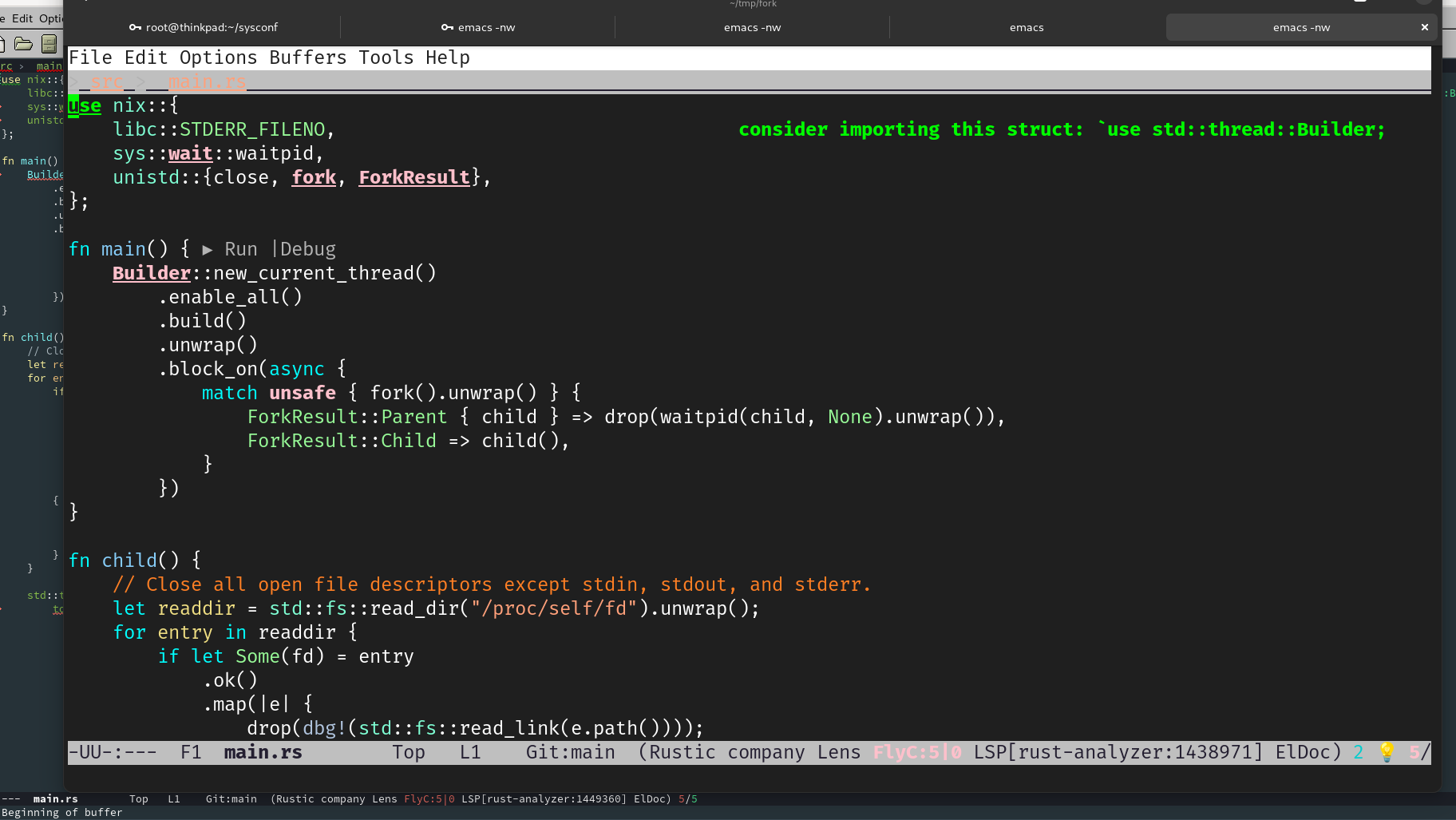Rust
7823 readers
2 users here now
Welcome to the Rust community! This is a place to discuss about the Rust programming language.
Wormhole
Credits
- The icon is a modified version of the official rust logo (changing the colors to a gradient and black background)
founded 2 years ago
MODERATORS
401
402
403
404
405
245
Google's Shift to Rust Programming Cuts Android Memory Vulnerabilities by 52%
(thehackernews.com)
406
407
408
409
410
411
412
413
414
415
416
417
418
419
420
421
422
423
424
36
This Month in Redox - August 2024 Massive Performance Improvement On Virtual Machines
(www.redox-os.org)
425

